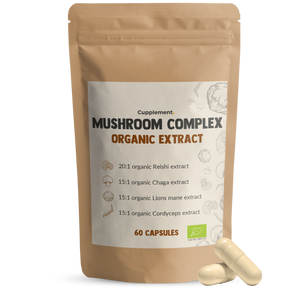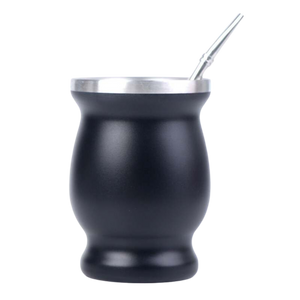
Is coffee good for your immune system?
There is a lot to read about the effect of coffee on your body. The effect of coffee on your resistance is one of them. Some articles say that coffee is good for your resistance, others say that coffee worsens your resistance. But what is true now? In this blog I will first explain what resistance actually is, and then explain the effect of coffee on your resistance.
What is resistance?
Physical barrier
Non-specific resistance
Your non-specific resistance targets all pathogens that occur in your body. Your non-specific resistance involves different types of white blood cells. These destroy all foreign substances that the white blood cells encounter on their journey through the body. They make no distinction between what kind of intruders.
There are different types of white blood cells that are involved in non-specific resistance. One such white blood cell is monocytes. These develop into macrophages; these are a type of vacuum cleaners that can suck up pathogens. Another type of white blood cells are granulocytes. The neutrophil and eosinophilic granulocytes can absorb substances and release enzymes. The enzymes that are released help kill and digest pathogens. The basophilic granulocytes are especially important in an allergic reaction. This is because basophilic granulocytes contain histamine. In addition, they are also natural killer cells, which means that they can directly destroy other cells.
Your specific resistance
The difference between the non-specific resistance and your specific resistance is that your specific resistance only targets one pathogen at a time. Your specific resistance comes into action when pathogens spread so quickly that your general defenses are unable to destroy them. Lymphocytes are involved in your specific resistance. These use receptors located on the outside of the cell. Receptors are actually receivers of stimuli and are often likened to a key that only fits one lock. This is because these receptors only fit on a specific protein on the wall of a pathogen. The lymphocyte therefore only comes into action when it encounters its specific pathogen.
There are not only three different types of resistance, but also two types immune systems. Namely your innate immune system and your learned immune system.
Innate immune system
As the name implies, you are born with your innate immune system. This innate immune system includes your physical barrier and your non-specific resistance. Your innate immune system is also known as the basic defense system and can react quickly when pathogens enter your body. Your innate immune system is unable to defend itself against specific attackers, which is where your learned immune system comes in.
Learned immune system
Your learned immune system is the immune system you develop throughout your life. This system remembers the pathogens after you have come into contact with them once and when your body becomes infected again, this immune system knows how to fight the pathogens. This makes you immune to these pathogens. This is also the immune system that is used in vaccines, for example. A vaccine activates part of the immune system and thus makes us immune to diseases.
A weak immune system
Sometimes you speak of a weak immune system. What is meant then is that your immune system is not working properly. This makes you more susceptible to viruses and infections. A weak immune system is caused, among other things, by oxidation of DNA, RNA, fats and membranes. Due to this oxidation, incorrect information can be passed on during cell division. This is how diseases can arise. Oxidation is caused by free radicals. To keep our resistance high, it is therefore important that we limit oxidation and fight free radicals. Our immune system is already doing its very best to fight these free radicals, but it needs some help with this. This is where antioxidants come into action! Antioxidant literally means 'against oxidation' and is a collective name for substances such as certain vitamins and trace elements. They render free radicals harmless by neutralizing them.
Coffee and resistance
How do you make sure you get enough antioxidants? Antioxidants are mainly found in fruit and vegetables, but also in dark chocolate and some spices such as turmeric. But did you know that most people get more antioxidants from the coffee they drink than from the fruits and vegetables they eat? Coffee contains a lot of antioxidants. As a result, coffee plays an important role in supporting resistance to diseases.
But to ensure that your resistance gets even better, we have also added various vitamins and minerals to our new Immunity blend. For example, vitamin C and trace elements selenium and zinc have been clearly shown to have an antioxidant effect and thus increase your resistance even more. Would you like more information about our Immunity blend? Download the product booklet here.
Popular products
-
Cupplement Frother

Handy frother for mixing additives to your coffee.
Order now -
Lions Mane

Lions Mane is known to help improve your concentration.*
Order now -
Matcha

Energy
Immunity
Matcha is een fijngemalen groene thee poeder dat traditioneel wordt gebruikt in de Japanse theeceremonie.
Order now -
Pill box

Introducing our sleek and convenient Pill Organizer – the perfect solution to streamline your supplement routine!
Order now -
Mushroom complex capsules

Discover the ultimate support for your overall well-being with our Organic Mushroom Complex in convenient capsules! Now with more active ingredients.
Order now -
Gourd set with bombilla

Handy frother for mixing additives into your coffee.
Order now



















